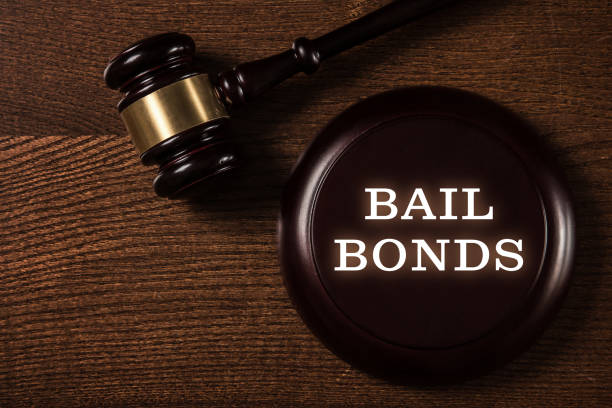Navigating the legal world can be daunting, especially when it comes to understanding bail settlement and bonds. If you’re new to this topic, you probably have many questions.
How does bail work? What are bonds? How can they affect my loved ones or me?
This comprehensive guide will demystify these concepts and provide you with a clear understanding of how bail settlements and bonds operate. Read on to learn more!
Understanding Bail Basics
Bail is a fundamental concept in the legal system that allows an accused person to be released from custody while awaiting trial. In simple terms, it is the amount of money paid by or on behalf of an individual charged with a crime to guarantee their appearance in court. The bail serves as a promise to the court that the defendant will show up for all the required court hearings and fulfill their obligation to the legal process.
What is Bail?
Bail is a financial arrangement set by the court that allows a defendant to be released from jail while awaiting trial. It acts as a security deposit, ensuring the defendant returns for their court appearances.
Purpose of Bail
The primary purpose of bail is to ensure that the defendant appears in court. It also serves to avoid overcrowding in jails and allows individuals to continue their daily lives while their legal matters are being resolved.
The Role of Bonds
Bonds come into play when an arrested individual cannot afford to pay their full bail amount. A bond is essentially a form of insurance provided by a licensed bond agent or company that promises to pay the full amount of bail to the court if the defendant fails to appear in court. In exchange for this service, the bond agent or company charges a non-refundable fee, usually 10% of the total bail amount.
How Bail Amount is Determined
Several factors influence the amount of bail set by the court. These include the severity of the crime, the defendant’s criminal history, the risk of fleeing, and the potential danger to the community. In some cases, the court may also consider the defendant’s financial standing and ties to the community.
Types of Bail
There are different types of bail that a defendant can be granted depending on their specific situation. These include:
Cash Bail
Cash bail requires the full bail amount to be paid in cash. This can be challenging for many, as the sum is often substantial. The cash is paid directly to the court and will be returned to the defendant at the end of the legal proceedings, provided they appear for all required court dates.
If the defendant fails to appear in court, the cash bail is forfeited, and a warrant is typically issued for their arrest. One of the advantages of paying cash bail is that it eliminates the need for a bail bond agent and the associated non-refundable fee. However, the significant downside is that it requires substantial upfront financial resources, which may not be readily available to everyone.
Bail Bonds
A bail bond is a more accessible option for many defendants. Here, a bail bondsman pays the bail amount on behalf of the defendant in exchange for a fee, usually around 10% of the total bail.
When a defendant opts for a bail bond, they agree with a bail bondsman or bail bond agency. This fee is non-refundable even if the defendant appears at all court dates as required. The bail bondsman then provides the court with a surety bond, which is a financial guarantee that the defendant will comply with the judicial process and attend all scheduled court appearances.
Own Recognizance (OR)
When a defendant is released on their Own Recognizance (OR), it means the court trusts the individual to attend all required court appearances without requiring the payment of bail. This type of release is generally granted when the judge believes that the defendant poses little to no risk of fleeing and does not present a danger to the public.
The decision to grant an OR release often considers the defendant’s ties to the community, employment history, criminal record, and the severity of the alleged crime.
The Role of Bail Bondsmen
Bail bondsmen are agents who provide bail bonds for defendants who cannot afford to pay the full bail amount. They charge a non-refundable fee for their services.
How Bail Bondsmen Operate
When a bail bondsman posts bail, they assume financial responsibility for the defendant. If the defendant fails to appear in court, the bondsman must pay the full bail amount and may use bounty hunters to locate and return the defendant.
Benefits of Using a Bail Bondsman
Using a bail bondsman can make the bail process more affordable and accessible. They also provide expertise and guidance through a complex legal system.
The Bail Process
When a person is arrested, they are taken into custody and booked. The booking process includes taking fingerprints, recording personal information, and conducting a criminal history check. Within 48 hours of an arrest, the defendant will attend a bail hearing where the judge will decide whether to grant bail and if so, the amount.
Arrest and Booking
The bail process begins with the defendant’s arrest and booking. This involves recording personal information, taking fingerprints, and conducting a background check. After the booking process, the defendant will be placed in a holding cell until their bail hearing.
Bail Hearing
The bail hearing is where a judge decides if bail will be granted and if so, the amount. The prosecutor may argue for a higher bail amount based on the severity of the crime, while the defense attorney can advocate for a lower amount. The judge will also consider any relevant factors before making their decision.
Posting Bail
If bail is granted, it can be paid in cash or through a bond posted by a licensed bond agent. Once bail is posted, the defendant will be released from custody and given instructions on when to appear in court.
Setting Bail
After booking, the court sets a bail amount based on the factors mentioned earlier. In some cases, bail may be pre-determined by a bail schedule. However, if the bail is not pre-determined or the defendant cannot afford it, a bail hearing will be scheduled.
Factors Influencing Bail Decisions
Several factors can influence the bail amount set by the court, such as:
Severity of the Crime
More severe crimes typically result in higher bail amounts. This is to ensure that the defendant appears in court to face serious charges.
Criminal History
A defendant with a history of crime may face higher bail. This is due to the risk of reoffending or of not appearing in court.
Flight Risk
If the court believes the defendant is likely to flee, they may set a higher bail amount or deny bail altogether.
Potential Danger to the Community
If there is a concern that the defendant may pose a risk to public safety if released, the court may set a higher bail amount or deny bail. This ensures that individuals who could potentially harm others remain in custody until their trial.
Financial Resources
The court may also consider the defendant’s financial situation. If the defendant has substantial assets or income, a higher bail amount may be set to ensure it serves as a sufficient deterrent against fleeing.
Behavior at Time of Arrest
The defendant’s behavior during and after the arrest can influence the bail decision. Cooperative and respectful behavior might result in a lower bail amount, whereas aggressive or uncooperative behavior could lead to higher bail or denial of bail.
Nature of the Evidence
The strength of the evidence against the defendant may impact the bail amount. Stronger evidence supports the charges. It could result in a higher bail. The chance of conviction might make the defendant flee.
Public Opinion and Media Attention
It can affect the court’s decisions on bail. This happens in high-profile cases or those getting much media attention. To maintain public trust and ensure safety, higher bail may be set to reflect the seriousness of the case.
Prior Court Attendance Record
A history of attending or missing court appearances can play a critical role in the bail decision. A defendant with a history of missed court dates might face higher bail or extra conditions to ensure compliance.
Bail Conditions and Restrictions
When bail is granted, the court may impose certain conditions or restrictions on the defendant’s release. These could include:
Travel Restrictions
Defendants released on bail may face travel restrictions. The restrictions are to ensure they stay within the court’s jurisdiction.
Regular Check-ins
Some defendants may have to check in with a pretrial services officer. This is to ensure they follow bail conditions.
No-contact Orders
In cases involving violence or harassment, the court may issue no-contact orders to protect victims and witnesses.
Consequences of Failing to Appear in Court
If a defendant fails to appear for any scheduled court date, they will be considered a fugitive. Their bail will be forfeited, and a warrant may be issued for their arrest. Additionally, failure to appear can result in additional criminal charges and penalties.
Forfeiture of Bail
If a defendant fails to appear in court, they lose their bail, and the court keeps the bail amount.
Additional Charges
Failing to appear can result in more charges, such as contempt of court or bail jumping, leading to further legal trouble.
Impact on Future Bail
A history of failing to appear in court can negatively impact a defendant’s ability to secure bail in future legal matters.
The Legal Framework Surrounding Bail
Bail practices and laws vary by state, with some states prohibiting certain types of bail bonds. You must consult with an experienced attorney. They can help you understand the laws and rules in your area.
Constitutional Rights
The Eighth Amendment of the U.S. Constitution protects against excessive bail. It ensures that bail amounts are reasonable, not punitive.
State Regulations
Bail laws and regulations can vary significantly between states. It’s crucial to understand the specific rules in your jurisdiction.
Judicial Discretion
Judges have much discretion in setting bail amounts and conditions. They do so based on the unique circumstances of each case.
Practical Tips for Managing Bail
Navigating the bail process can be overwhelming and confusing, but these practical tips can help:
Consult an Attorney
Seeking legal advice from an experienced attorney can help you understand your options and rights regarding bail. They can also help you navigate the legal system and advocate for a fair bail amount.
Understand the Terms
Make sure you fully understand the terms and conditions of your bail to avoid unintentional violations. If you have any questions, consult with your attorney.
Stay Informed
Keep track of all court dates and obligations to ensure compliance with bail conditions and avoid additional legal trouble.
Common Misconceptions About Bail
There are many misconceptions surrounding bail that can lead to confusion and misunderstanding. Some of these include:
Bail is the Fine for a Crime
Bail is not a fine or punishment for a crime but rather serves as an incentive for defendants to return to court.
Bail Equals Innocence
Paying bail does not imply innocence. It’s merely a financial assurance that the defendant will return to court.
Bail is Always Granted
Bail is not guaranteed in all cases. For severe crimes or high flight risks, the court may deny bail.
Bail Bondsmen Work for Free
Bail bondsmen charge a fee for their services. This fee is non-refundable, regardless of the case outcome.
Additional Resources
If you or a loved one is facing bail, seeking legal advice from an experienced attorney is crucial. Additionally, there are several resources available for those seeking more information on bail and related topics:
Legal Aid Services
Various organizations offer legal representatives to individuals who cannot afford private attorneys. These services can provide valuable assistance in navigating the bail process. If you are looking for some professionals, consider Bail 2 GO Orlando.
Support Groups
Joining support groups can provide emotional support. You can also get practical advice from others who have gone through similar experiences.
Understanding the Bail Settlement
Understanding bail settlement and bonds is essential for anyone facing legal challenges. By familiarizing yourself with the process, types of bail, and the role of bail bondsmen, you can make informed decisions and better manage your situation. Remember, seeking legal advice and staying informed are crucial steps to navigating the complexities of the legal system successfully.
For more helpful tips, check out the rest of our site today.




